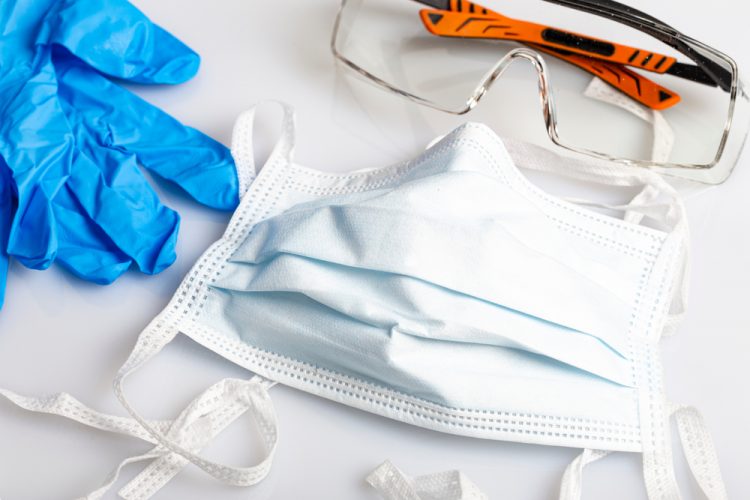The Nigerian Medical Association is mobilising resources in “cash and kind” to provide protective gear and consumables to help private health facilities it says are on their own.
It said private hospitals have been “seemingly abandoned by public authorities to practice infection-prevention-and-control for their safety and protection of their staff, patients and the public.”
It comes amidst concern that much of the distribution of much of the donated protective gear is targeted at public hospitals.
On Wednesday, the Association of Community Pharmacists of Nigeria threatened its members would withdraw their services “if it becomes obvious that continuing rendering our services would be detrimental to our personal health and that of our family members without adequate attention from the government.”
This week, the Nigerian Union of Journalists in Abuja also demanded authorities provide protective gear for journalists covering the daily briefing of the Presidential Taskforce on Covid-19.
In a solidarity message to mark World Day for Safety and Health and Work, NMA raised concern about continued exposure of health workers to coronavirus on the frontlines of the pandemic.
A total 264 doctors are working in Covid-19 situations in isolation and treatment centres.
Twenty of them have contracted the virus, three have died and two recovered.
“These are among the over 66 healthcare workers who have tested positive after their exposure and four who died,” said NMA president Francis Faduyile.
“NMA acknowledges that contracting the virus from patients with the highly contagious COVID-19 is feasible even with the best of conditions due to the inevitability of close contacts with the sick,” he said.
“The Association however restates that the occurrence could be reduced with strict adherence to the global best practice of Infection Prevention and Control (IPC) protocols.
“Availability of personal protective equipment (PPE) in adequate quality and quantity, amenities like running water, enabling environment in the health service space and spirit lifting motivation and incentives can mitigate hazardous environments, reduce drastically the incidence of nosocomial infections and engender a hazard-free health service environment.”

 Join Daily Trust WhatsApp Community For Quick Access To News and Happenings Around You.
Join Daily Trust WhatsApp Community For Quick Access To News and Happenings Around You.


